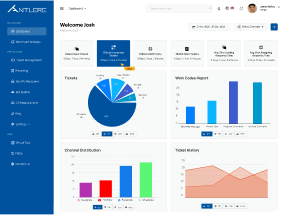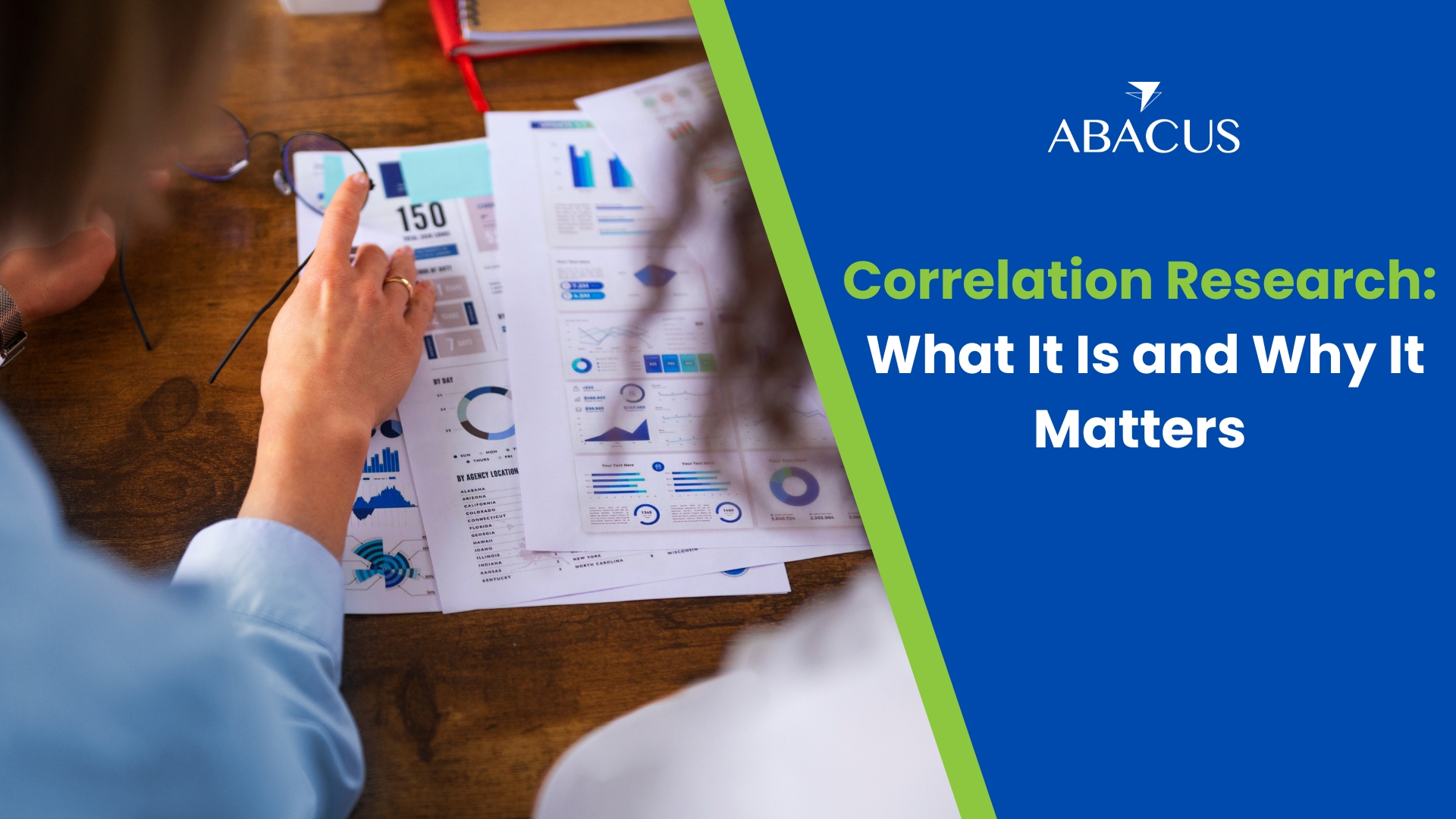Correlation Research: What It Is and Why It Matters
Why is it called correlational research?
Correlation research is a research study that determines the presence of relationship between two or more variables without modifying them.
It is termed as correlational as it examines the correlation or association of variables. An example of a correlational study would be to determine whether the number of hours studying history is correlated with increased test scores or whether hours of screen time can be associated with the quality of sleep.
In contrast to the experimental research where cause and effect relationships are given, the correlational research is not able to determine causation. Rather, it indicates the relationship between variables to be either positive, negative, or not. This renders it a useful instrument to researchers who may wish to examine natural relations as they are in the real world.
Simplify your research processes with Abacus
What is a correlation in simple terms?
A correlation only indicates that as one variable varies, another is likely to vary with it. A correlation coefficient measures the direction of this relationship taking the value of -1 to +1.
Positive correlation implies that both variables go up together such as exercise and calorie burn. Negative correlation implies that one increases as the other decreases, as it can be the levels of stress and the quality of sleep. Correlation of 0 implies no relationship between the two variables.
Correlation studies often display results in a scatter plot, where data points reveal patterns. While these visualizations are powerful, it is important to remember the golden rule: correlation does not imply causation. Just because two things are related does not mean one causes the other.
How does correlation analysis work in research?
Correlation analysis is the process of calculating and interpreting the strength and direction of a relationship between variables. The most common statistical measure is Pearson’s correlation coefficient, but other methods like Spearman’s rank correlation can also be used depending on the data type.
Researchers gather data, plot it and lastly compute the correlation coefficient. The more similar the coefficient is to +1 or -1, the better the relationship. Close to 0 the coefficient can signify weak correlation or none. Frequently, correlational research resorts to such analysis as a preliminary step prior to performing more sophisticated statistical techniques such as regression analysis or predictive modeling.
What is a correlation study?
A correlational study is any research project that researches the level of association between two or more variables. Such studies are typical of psychology, education, business, and health sciences.
As an example, psychologists can conduct correlational research to determine whether self-esteem levels depend on the use of social media, and business analysts can research whether customer loyalty can depend on customer satisfaction scores.
Correlational studies prove particularly helpful when it is impossible to conduct experiments because of ethical or practical considerations. Their benefit is that they enable the researcher to examine real-world trends without controlling the conditions, hence being economical and more representative of the natural behavior.
What is correlational research best for?
Correlational research is most useful at determining trends, formulating hypotheses and identifying the areas where further research is needed. It is also applicable especially at the initial phases of research when scientists are interested to know whether variables are worth pursuing in more details.
It is also very useful in other areas such as market research, healthcare, and education among others where observation of natural relationship can be used to gain actionable information. Through correlation analysis, organizations can be able to save time and resources and concentrate on only the variables that are most likely to affect results.
Why should researchers use correlational research?
Researchers use correlational research because it is efficient, ethical, and realistic. It allows for the study of relationships as they naturally occur, without artificial manipulation. The method also helps to uncover hidden connections that may not be obvious at first glance.
Nevertheless, correlational research can only show relationships and not cause and effect. External factors sometimes referred to as third variables or latent variables can affect the two variables under study. That is why, to create a more complete picture, correlational studies are frequently used along with other research techniques.
Final thoughts
Correlational research is an effective method of investigation and comprehension of connections between variables. Through methods such as correlation analysis and well planned correlational studies, researchers are able to express patterns that guide subsequent experiments and practical judgments. Although this does not mean it is causal, it is one of the most popular and most useful techniques in the industries such as psychology, and even business.
At Abacus BPO, we help organizations streamline their research and data analysis processes, turning complex findings into actionable strategies. Whether you’re exploring customer behavior, market trends, or operational efficiency, our expert team ensures your correlational research leads to smarter, evidence-based decisions. Partner with us to transform data into growth opportunities.











